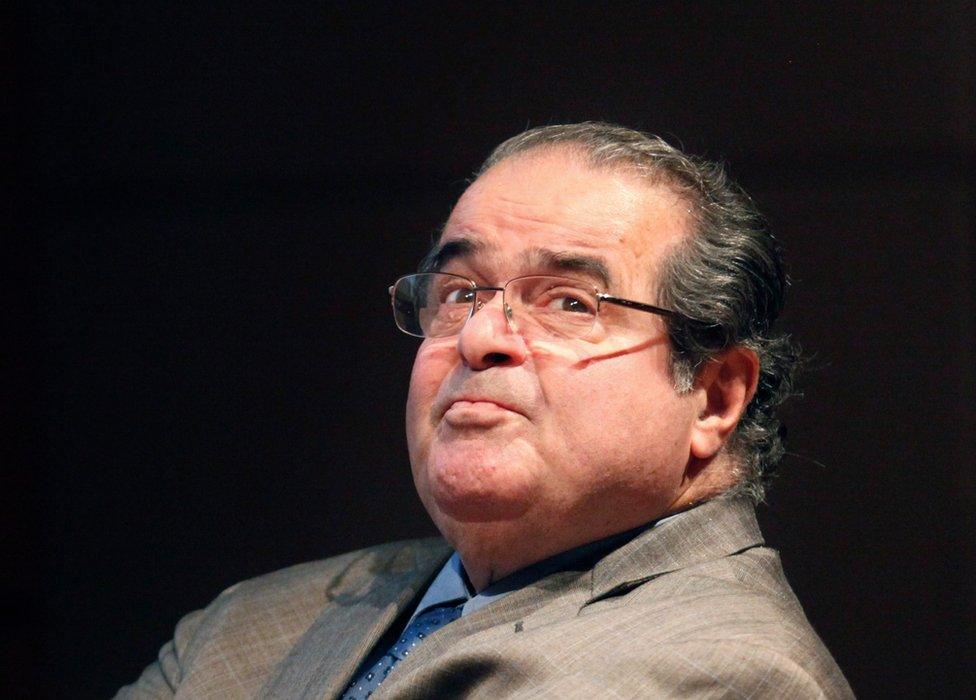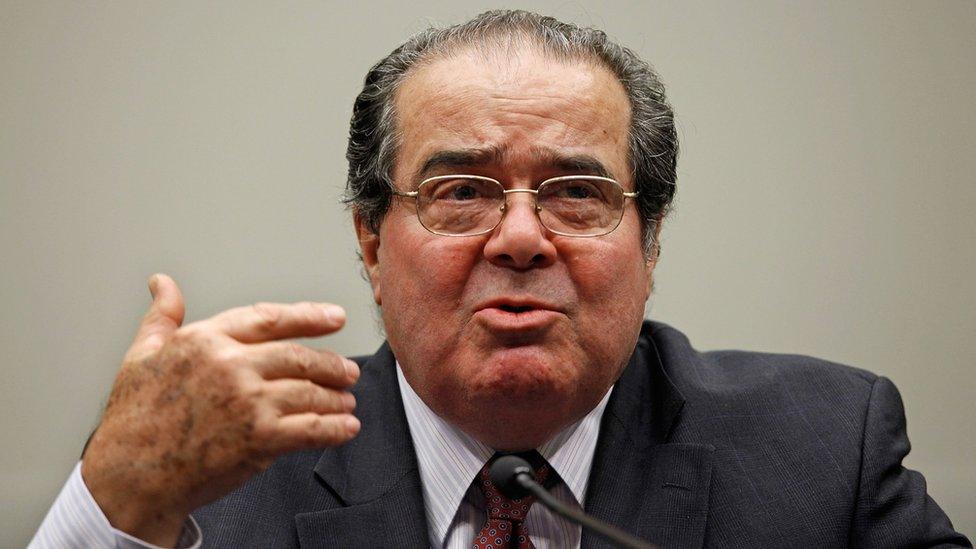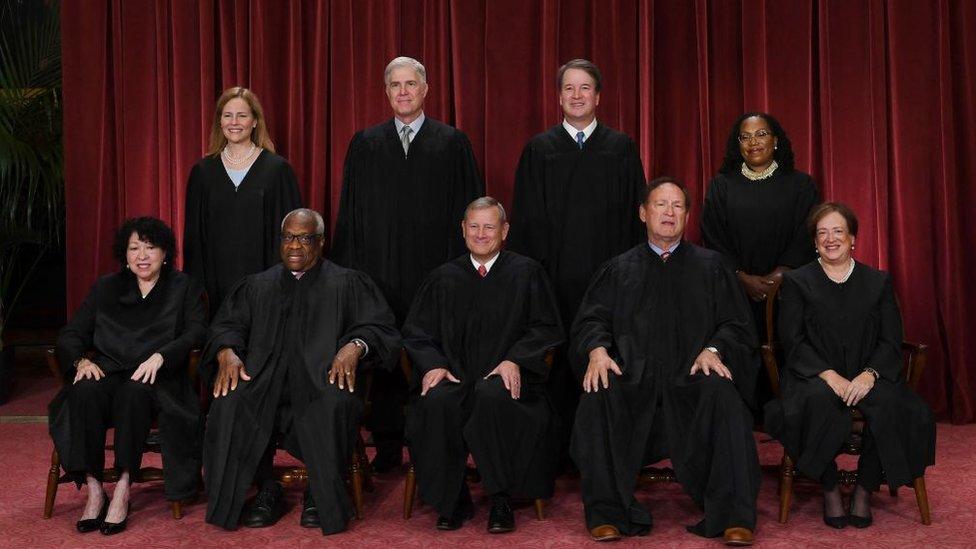Justice Antonin Scalia: In his own words
- Published

Conservative US Supreme Court Justice Antonin Scalia, who died on Saturday, was renowned for his biting wit, sarcasm and cutting humour - in daily life, as well as in his rulings, external.

On people who held views that opposed his
"I respect the people who have them, but I think those views are just flat out wrong." - to CBS News, 2008

On criticism over his ruling in favour of George W Bush in the disputed 2000 election
"Get over it."- on numerous occasions

His advice to college graduates

"Never compromise your principles, unless of course your principles are Adolf Hitler's, in which case you would be well advised to compromise them as much as you can."- in a speech at his granddaughter's graduation, 2015

On arguing
"I love to argue. I've always loved to argue. And I love to point out the weaknesses of the opposing arguments. It may well be that I'm something of a shin kicker. It may well be that I'm something of a contrarian." - to CBS News, 2008

On his enemies
"A man who has made no enemies is probably not a very good man." - in an interview with Charlie Rose, 2012

On ambiguity
"What is a moderate interpretation of the text? Halfway between what it really means and what you'd like it to mean?" - in a speech to the Woodrow Wilson International Center for Scholars, 2005

On free speech
![Anarchists burn an American flag [Stars and Stripes] after U.S. President George W. Bush's second term inauguration parade January 20, 2005 in Washington, D.C](https://ichef.bbci.co.uk/ace/standard/976/cpsprodpb/4F0C/production/_88263202_9fb7985a-ed74-4062-9841-9acdea69b6a8.jpg)
"I do not like scruffy people who burn the American flag, [but] regrettably, the First Amendment gives them the right to do that." - in a speech to the Lewis & Clark Law College, 2002

On originalism - the view that the meaning of the text of the Constitution does not evolve
"Sometimes people come up to me and inquire, 'Justice Scalia, when did you first become an originalist?' As though it's some weird affliction, you know, 'When did you start eating human flesh?' " - in a speech at Oxford University, reported by CBS in 2008

On being a judge
"If you're going to be a good and faithful judge, you have to resign yourself to the fact that you're not always going to like the conclusions you reach. If you like them all the time, you're probably doing something wrong." - in a speech at Chapman Law School in 2005

On a lawyer's work
"The main business of a lawyer is to take the romance, the mystery, the irony, the ambiguity out of everything he touches." - in a speech at the Juilliard School in 2005
- Published14 February 2016

- Published8 February 2024
